Did you know some dogs seem to have an emotional radar that picks up on how you’re feeling—sometimes even before you do? These breeds aren’t just pets; they’re four-legged therapists with wagging tails.
Whether it’s curling up beside you after a long day or nudging your hand when you’re upset, emotional dog breeds have an incredible ability to connect with humans on a deeper level. They sense tone, body language, and energy, responding with empathy that feels almost human.
From loyal companions that thrive on affection to gentle souls that offer calm reassurance, these dogs are more than friends—they’re emotional anchors.
In this guide, we’ll explore the most popular emotional dog breeds you simply can’t ignore, and what makes each of them so naturally in tune with the hearts of their humans.
Popular Emotional Dog Breeds You Can’t Ignore
1. Golden Retriever
Golden Retrievers are the gold standard of emotional support and companionship. Their friendly faces and calm energy make them natural comfort-givers in almost any situation.
Known for their patience and warmth, they have an uncanny ability to sense their owners’ moods and respond with affection and gentleness.
According to the AKC, these dogs thrive on connection, forming deep emotional bonds that often feel human-like. Their intelligence and eagerness to please make them ideal for therapy and support work. Whether it’s offering a soft paw or simply resting by your side, a Golden’s empathy is always genuine.
Families love them for their blend of loyalty and emotional balance. They adapt well to children, the elderly, and even other pets, radiating stability and positivity at home. Their expressive eyes and gentle demeanor create a soothing presence wherever they go.
As naturally social dogs, Goldens flourish with consistent love and engagement. They seek reassurance through shared activities and excel in environments filled with encouragement.
Their temperament is perfectly balanced—neither overly timid nor excessively energetic—making them one of the most emotionally intelligent breeds.
A Golden Retriever’s sense of joy is contagious. They seem to absorb stress and replace it with optimism, reminding everyone that love, loyalty, and understanding can be life-changing companions.
Fun Fact
Golden Retrievers are so emotionally aware that hospitals and crisis centers often use them for therapy because of their natural ability to comfort strangers without formal training.
2. Labrador Retriever
The Labrador Retriever is widely celebrated for its affectionate, easygoing personality. These dogs seem to wear their hearts on their sleeves, always ready to offer comfort, laughter, or support. Their emotional intelligence makes them one of the most beloved breeds for families and therapy work alike.
Labs are exceptionally adaptable, thriving in both lively and calm homes. Their cheerful energy blends well with children and other pets, creating an atmosphere of companionship and trust. They’re equally content fetching a ball or curling up beside you after a long day.
What sets them apart is their ability to read human emotions. Labradors respond to sadness with stillness and to happiness with joyful enthusiasm, adjusting their behavior to their owners’ state of mind. That empathy, paired with their loyalty, cements them as dependable family companions.
As per PetMD, their intelligence and eagerness to learn make them quick to train, especially for roles involving emotional or physical support. With positive reinforcement and attention, they develop a balance of playfulness and self-control that’s hard to beat.
Labradors remind their families daily that love doesn’t need to be spoken. Their presence alone brings warmth, security, and a sense of unconditional acceptance.
Fun Fact
Labradors are often used as guide dogs, rescue dogs, and emotional support animals because of their calm nature and reliability under stress.
3. Cavalier King Charles Spaniel
Cavalier King Charles Spaniels are affectionate little charmers with a royal history and a heart made for companionship. They have a soft, expressive face and a personality that radiates warmth and trust. Their favorite activity is simply being close to their humans, soaking up affection and returning it tenfold.
This breed is known for its intuitive nature, sensing emotions, and offering quiet comfort. They often cuddle close when someone is sad and share playful energy when spirits are high. Their gentle nature makes them perfect for people who need a calm, consistent emotional connection.
Despite their small size, Cavaliers have enormous hearts. They bond deeply and quickly, creating lifelong attachments. Their adaptable temperament makes them equally at home in apartments, family houses, or quiet retirement settings.
They’re also great companions for children, responding to tenderness and respect with endless affection. Because of their empathy and mild demeanor, they’re often called “the comfort dogs” of the toy breed world.
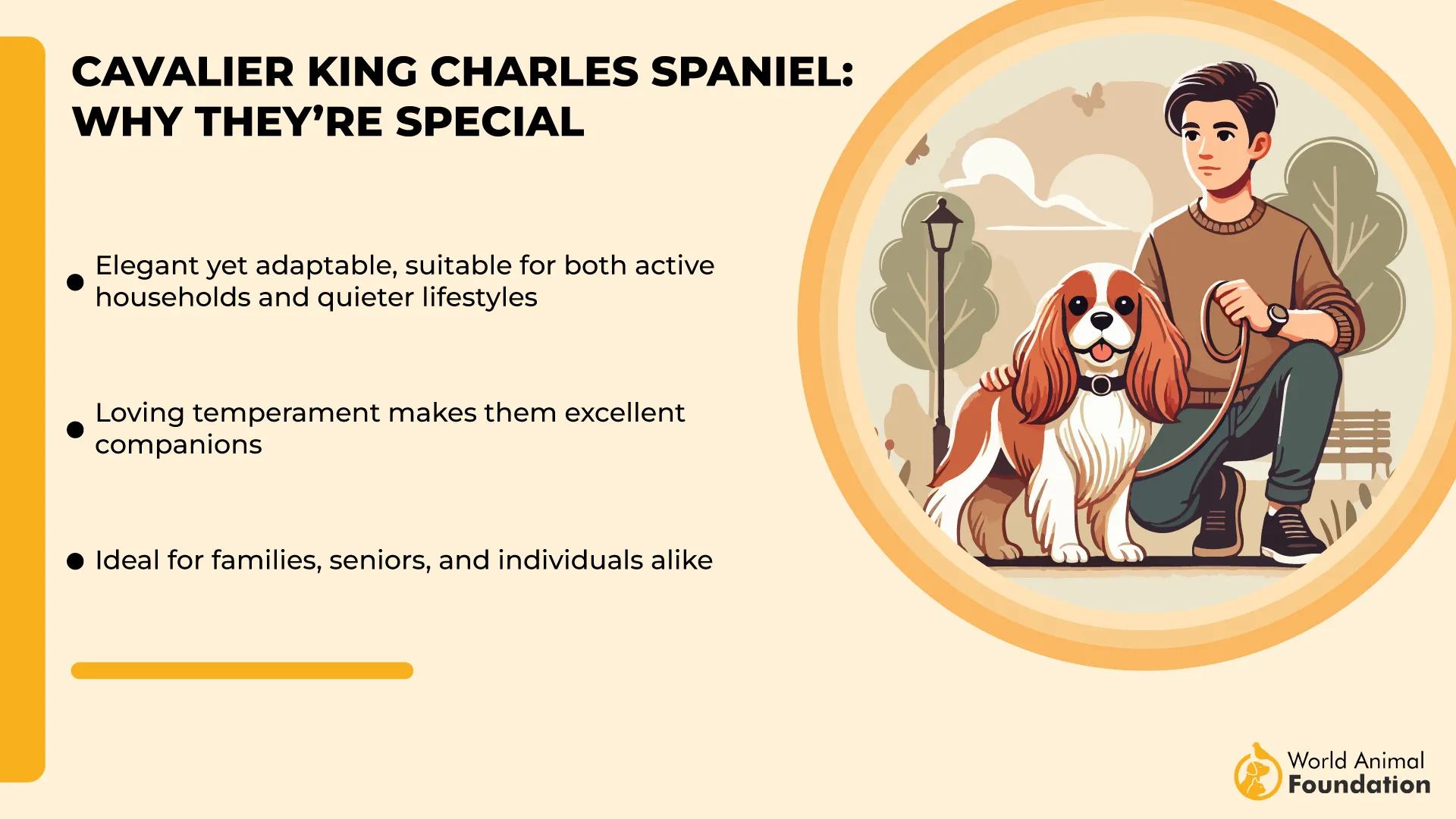
Their ability to blend playfulness with composure gives them a unique balance that few breeds match. For anyone seeking a loyal, emotionally in-tune companion, the Cavalier’s warmth is unmatched.
Fun Fact
The Cavalier King Charles Spaniel was a favorite of British royalty, often seen in portraits cuddled beside kings and queens—a legacy of their gentle companionship that continues today.
4. Pug

The Pug is proof that big emotions can come in small packages. With their round faces and soulful eyes, Pugs thrive on human interaction and attention. They’re natural comedians who sense when their people need cheering up and use affection and playfulness to lift spirits.
These dogs are affectionate extroverts, happiest when surrounded by love and laughter. They adapt well to any lifestyle, provided they receive consistent companionship. Their expressive personalities and ability to mirror their owner’s mood make them one of the most emotionally responsive breeds.
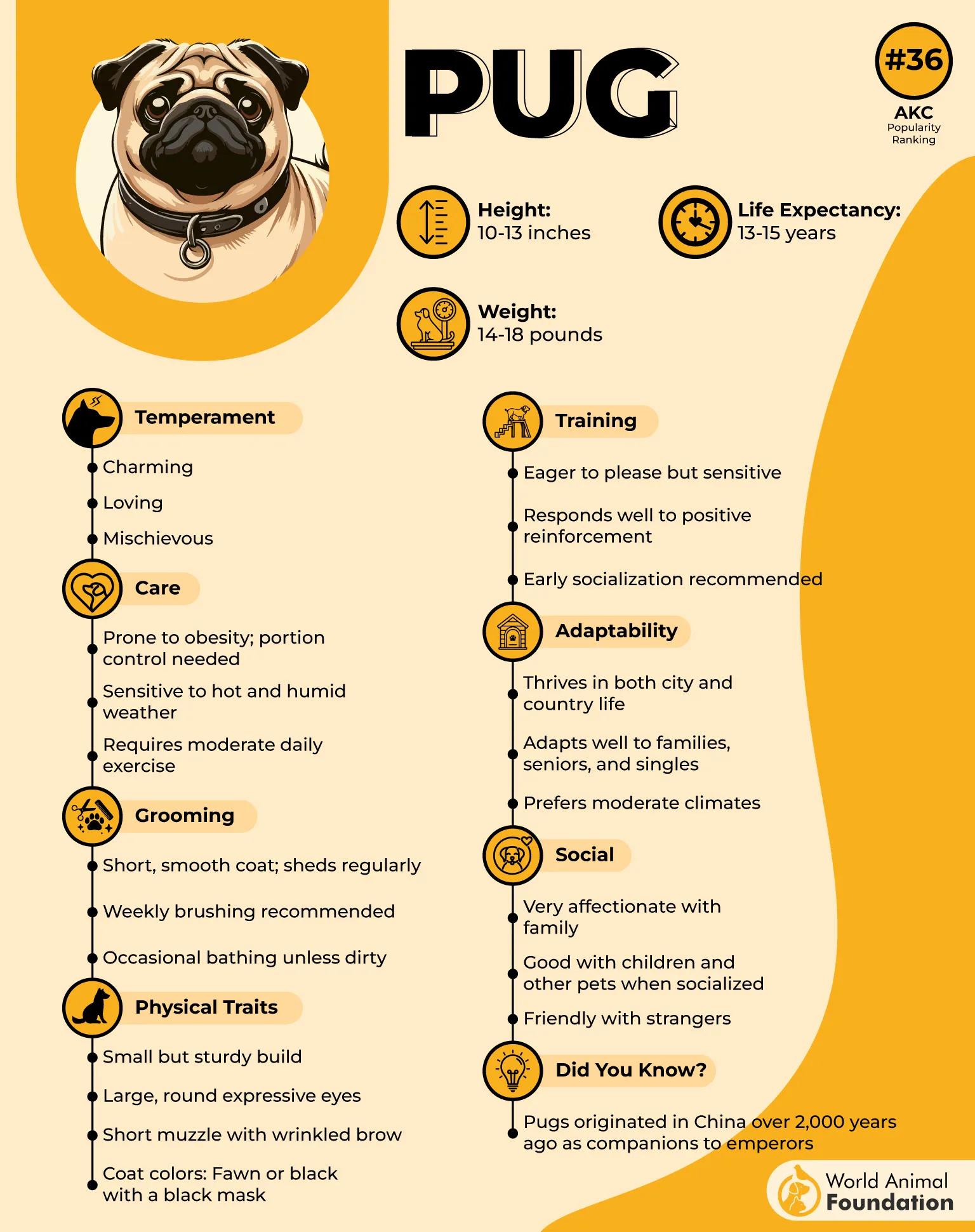
Pugs excel as emotional support animals because they love close physical contact. Whether snuggling on the couch or following their owners from room to room, they bring comfort through connection. Their calm, loving energy makes them ideal for people seeking companionship and emotional balance.
Though small, Pugs have a strong sense of loyalty. They form deep bonds and often develop routines that revolve around their humans’ comfort. Their empathy shines in quiet moments, where their gentle presence speaks louder than words.
Because of their even temperament and low exercise needs, Pugs are suitable for families, seniors, and individuals seeking unconditional affection in a compact, loving package.
Fun Fact
Pugs were bred to be companions for Chinese emperors, and they still carry that royal charm—thriving best when they’re the center of attention.
5. Irish Wolfhound
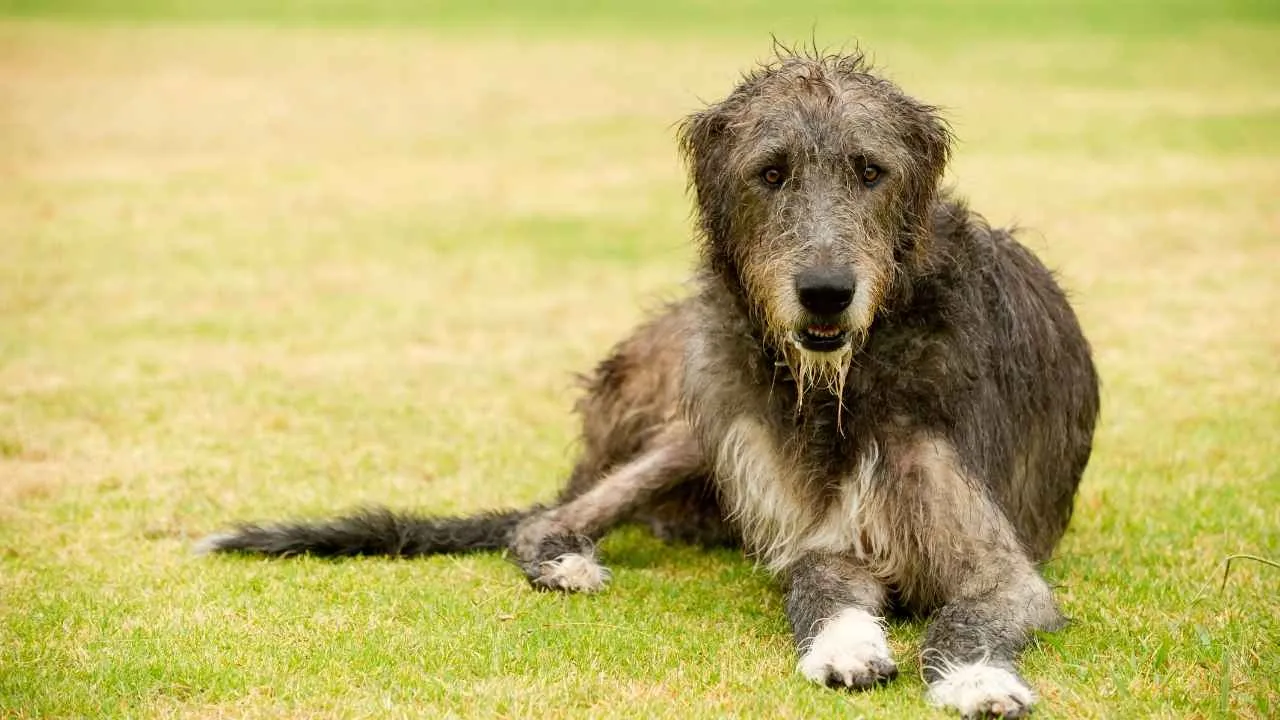
The Irish Wolfhound may look imposing at first glance, but this gentle giant is one of the most affectionate and emotionally intuitive breeds around.
Despite their massive size, they have a calm, thoughtful nature and often act as quiet companions, preferring closeness over chaos. Their tender personalities make them comforting presences in any home.
Wolfhounds are deeply loyal and sensitive to their owners’ moods. They notice small changes in tone or body language and respond with gentle reassurance. Their even temperament and patience make them especially good with families, offering calm stability to those who need emotional grounding.
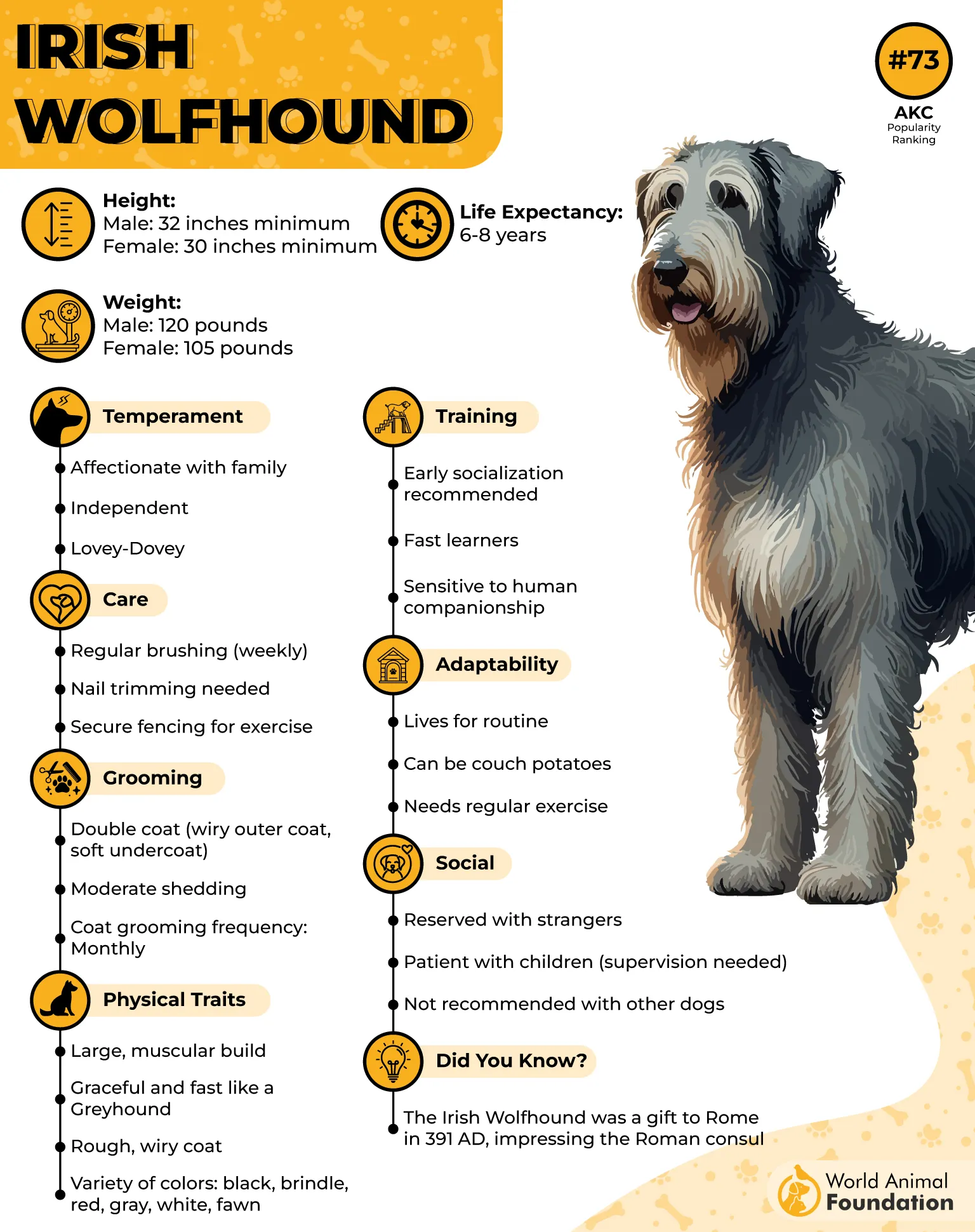
As per PDSA, they’re not overly demanding but thrive on companionship and trust. When treated with kindness and respect, the Irish Wolfhound becomes incredibly bonded, showing love through quiet loyalty rather than exuberant affection. They’re often happiest simply resting near the people they care for most.
Because of their large build, they require space and mindful care. Regular light exercise and a comfortable environment help them maintain health and happiness. In return, they give steadfast devotion and a peaceful energy that soothes any household.
Despite their size, these dogs have remarkably soft hearts. Their combination of dignity, patience, and emotional awareness makes them gentle giants in every sense of the word.
Fun Fact
The Irish Wolfhound was originally bred to hunt wolves and guard estates, but today it’s known more for its tender-hearted nature than its hunting ability. It’s often called a “gentle guardian” because of its affectionate calmness.
6. Poodle
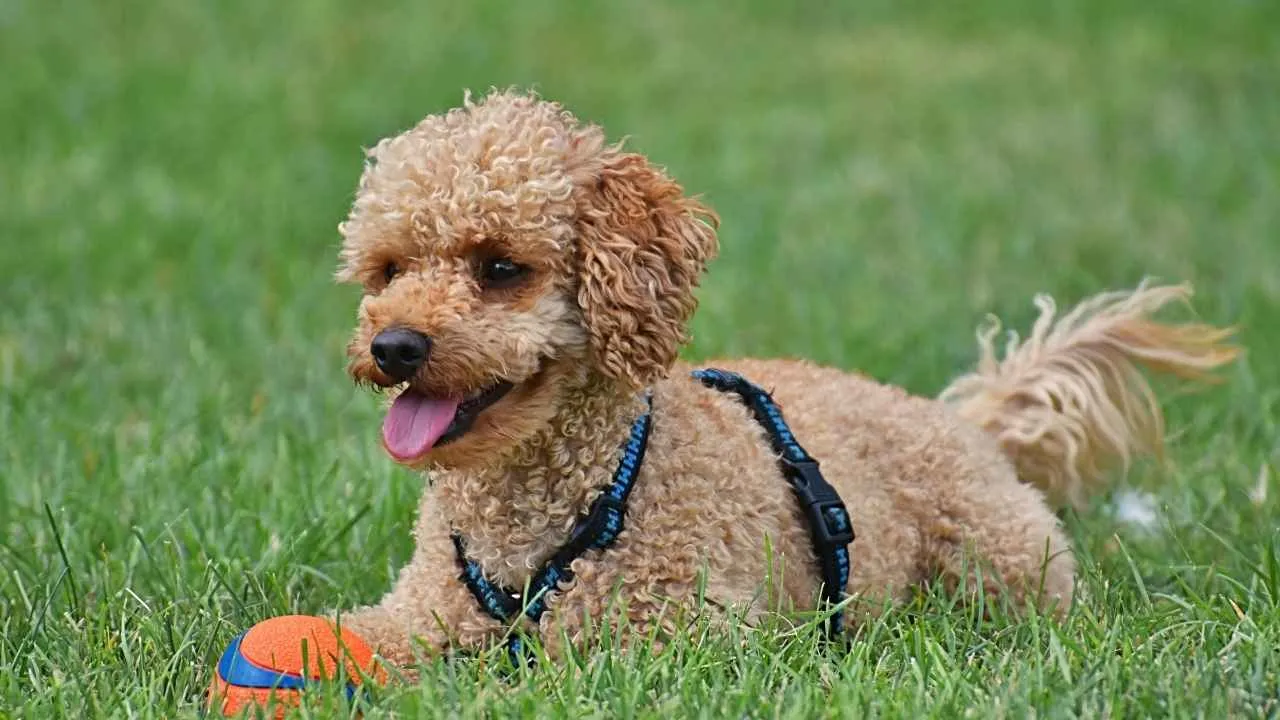
The Poodle is far more than a show dog—it’s one of the most emotionally intelligent and empathetic breeds out there.
Known for its keen intuition, a Poodle quickly tunes into its owner’s mood and responds with affection or calm support. This breed thrives on emotional connection and consistent companionship.
Poodles are highly intelligent and thrive on mental stimulation. They enjoy learning tricks, solving puzzles, and being part of family activities. Their sharp minds make them adaptable, while their friendly, responsive personalities keep them emotionally grounded and loyal.
Because of their sensitivity, Poodles don’t do well with harsh tones. They flourish when training includes encouragement, patience, and gentle guidance. Their emotional awareness makes them excellent support dogs for individuals dealing with anxiety, depression, or stress.
Their graceful appearance mirrors their balanced temperament—elegant but approachable, lively yet steady. Whether Standard, Miniature, or Toy, every size shares the same affectionate heart and loyal disposition.
Poodles have a gift for blending fun with emotional steadiness, reminding their families that joy and comfort can coexist beautifully.
Fun Fact
Poodles are one of the most hypoallergenic breeds, which makes them a top choice for therapy and emotional support work in allergy-sensitive homes.
7. German Shepherd
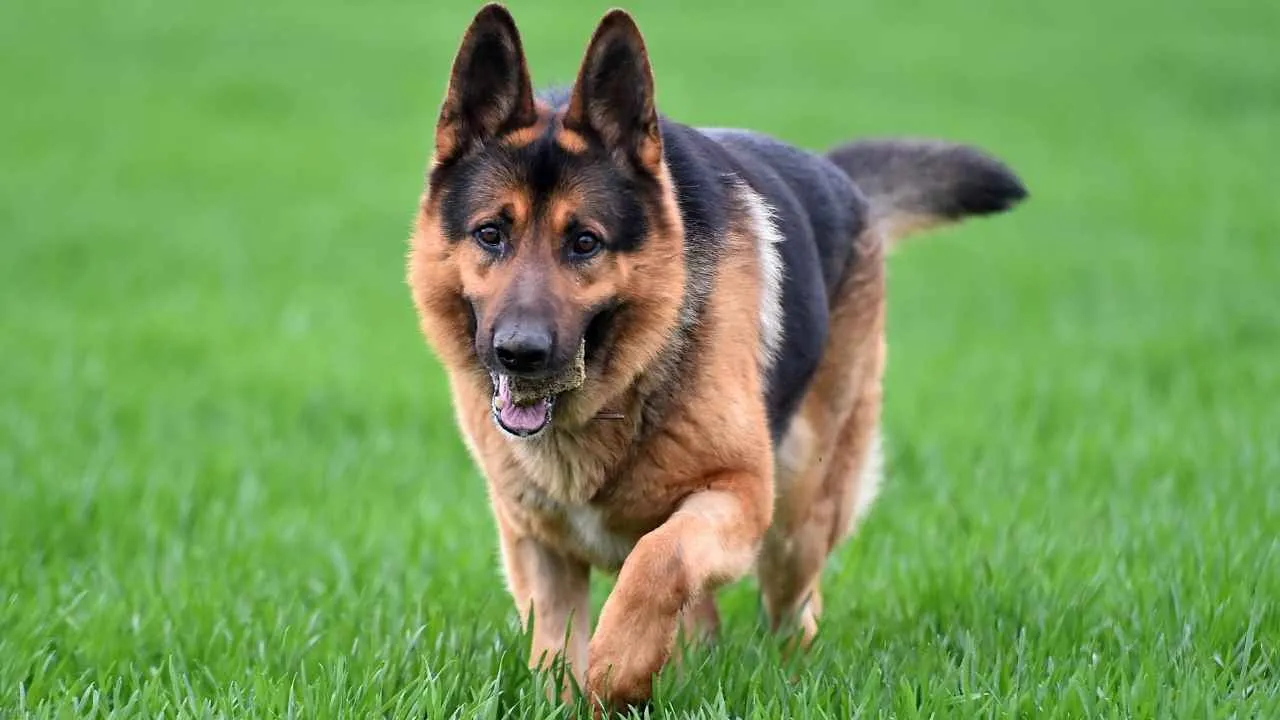
The German Shepherd is often celebrated for its intelligence and bravery, but it’s also deeply emotional and empathetic.
These dogs form powerful bonds with their families, demonstrating fierce loyalty mixed with genuine affection. Their balanced nature allows them to protect while also offering comfort and stability.
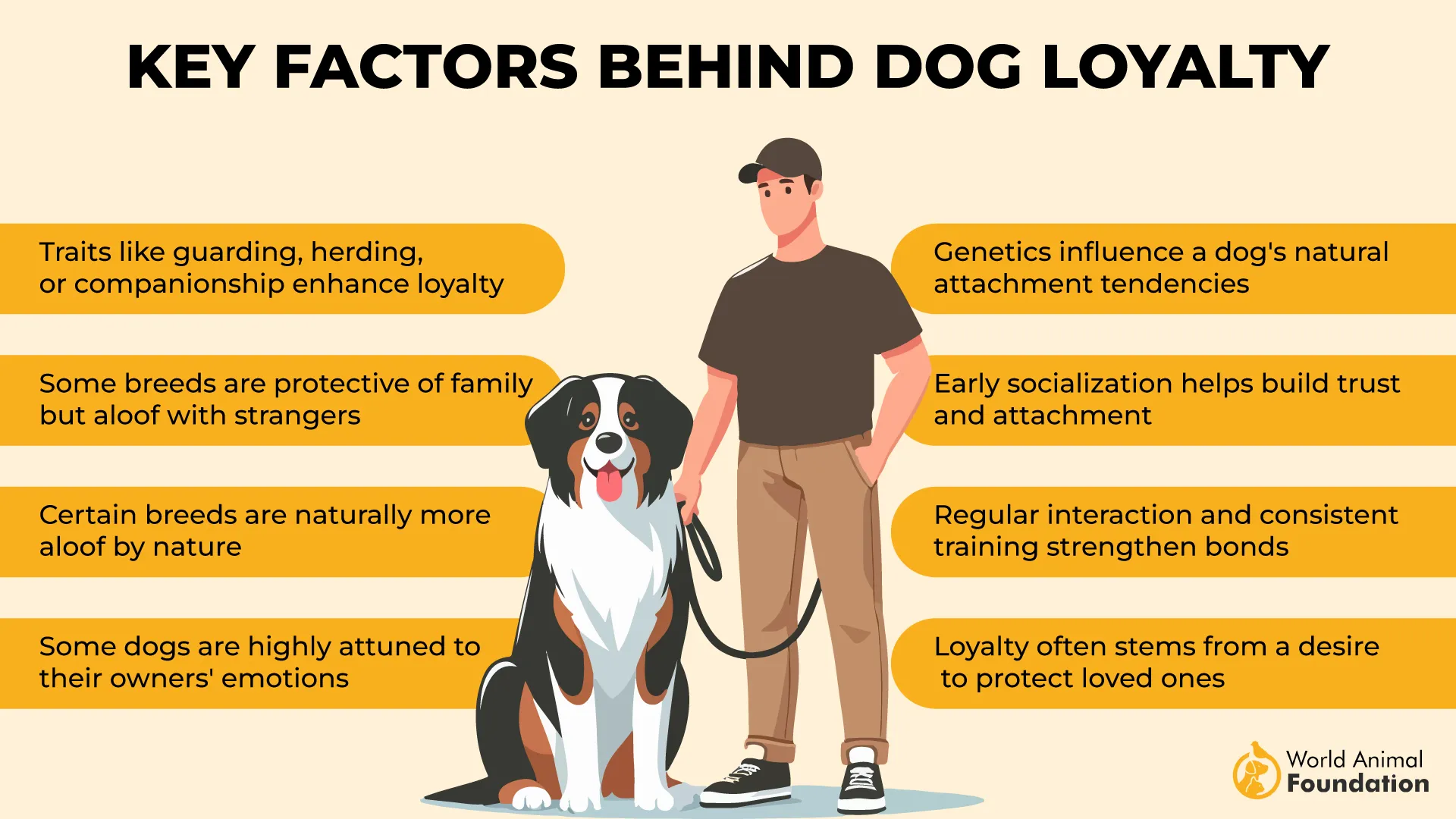
German Shepherds are intuitive, sensing when their owners feel uneasy or distressed. They respond by staying close, often using gentle physical contact to reassure. This instinctive sensitivity, combined with their intelligence, makes them excellent emotional support and service dogs.
Training comes naturally to them—they love having purpose and structure. When trained with positive reinforcement, they learn quickly and remain eager to please. Their loyalty runs deep, and their ability to read human emotion makes them exceptional companions in both calm and challenging moments.

Though they have a strong protective instinct, they are generally calm and confident, not reactive. This balance of alertness and tenderness helps create a sense of emotional safety for their families.
A German Shepherd’s combination of strength, intelligence, and empathy makes it one of the most complete emotional and working breeds in the world.
Fun Fact
German Shepherds are one of the most commonly chosen breeds for therapy and rescue work, thanks to their focus, patience, and unwavering loyalty to their handlers.
FAQs
Can emotional dog breeds help with anxiety or loneliness?
Yes, emotional support dogs can provide comfort and stability for people dealing with anxiety or loneliness. Their gentle temperament, loving nature, and ability to form strong bonds help improve mental health and create a sense of companionship.
How can I choose the right emotional dog breed for me?
Start by considering your lifestyle, energy level, and available time for walks, grooming, and training. Certain breeds need more activity, while small dogs or lap dogs may prefer quiet environments. Consistent training and patience are key to developing a strong connection.
How do emotional breeds behave when their owners are happy?
These dogs often mirror human emotions—they become playful, alert, and affectionate when they sense joy. Their natural empathy allows them to respond with excitement and love, strengthening their bond through shared happiness.
Conclusion
Emotional support dogs bring warmth, balance, and unconditional love into their owners’ lives. With their gentle temperament, playful nature, and strong bonds, they provide comfort during stress and joy during calm moments.
Consistent training and patient care help these dogs thrive as loyal companions for families, kids, and even other pets like cats. Their sensitivity makes them excellent in service work, offering real support for mental health and emotional stability.
Other dog breeds, such as the Great Dane, Border Collie, and various mixed breeds, also make wonderful companions when given proper food, exercise, and affection. With love, effort, and trust, these best friends return every bit of care you give—one paw and one heartbeat at a time.


